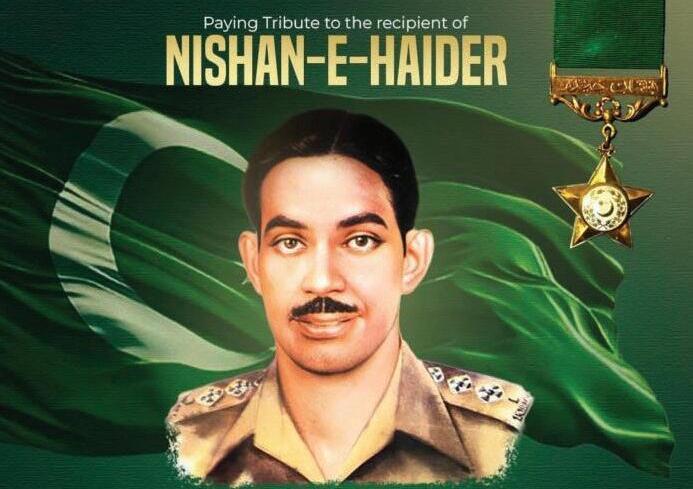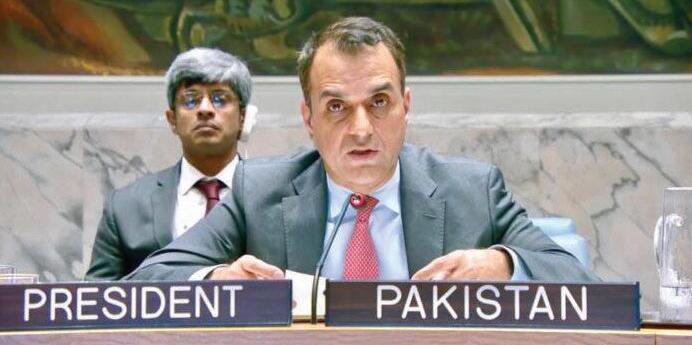

COMMITTED TO BUILDING SECURE, PROSPEROUS
REGIONAL ENVIRONMENT
g FIELD MARSHAL MUNIR REAFFIRMS
PAKISTAN ’S STEADFA ST COMMITMENT TO PEACE, STABILITY AND CONSTRUCTIVE ENGAGEMENT ACROSS THE REGION
WITH HELP OF ALLIES: COAS
g PARTICIPANTS DISCUSS REGIONAL SECURITY DYNAMICS, EVOLVING SECURITY ENVIRONMENT IN CENTRAL AND SOUTH A SIA, AND COORDINATED RESPONSES: MILITARY MEDIA WING
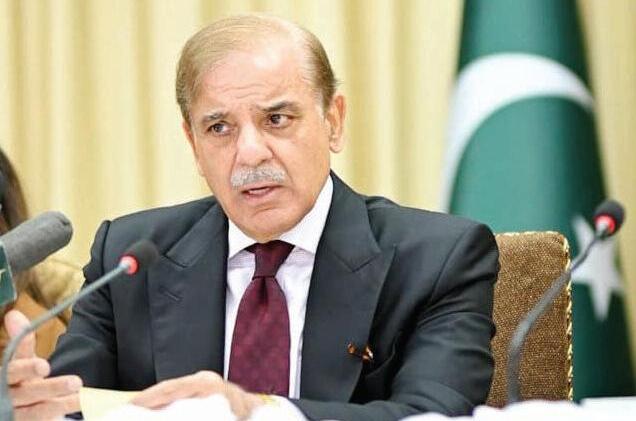
g SENIOR MILITARY OFFICIALS FROM US, KAZAKHSTAN, KYRGYZSTAN, TAJIKISTAN AND UZBEKISTAN ATTEND REGIONAL CHIEFS OF DEFENCE STAFF CONFERENCE: ISPR
g CONFERENCE SEEKS TO REINFORCE SECURITY COLLABORATIONS, ENHANCE TRAINING INITIATIVES AND EXCHANGE BEST PRACTICES IN COUNTERTERRORISM AND OTHER SPHERES: ISPR
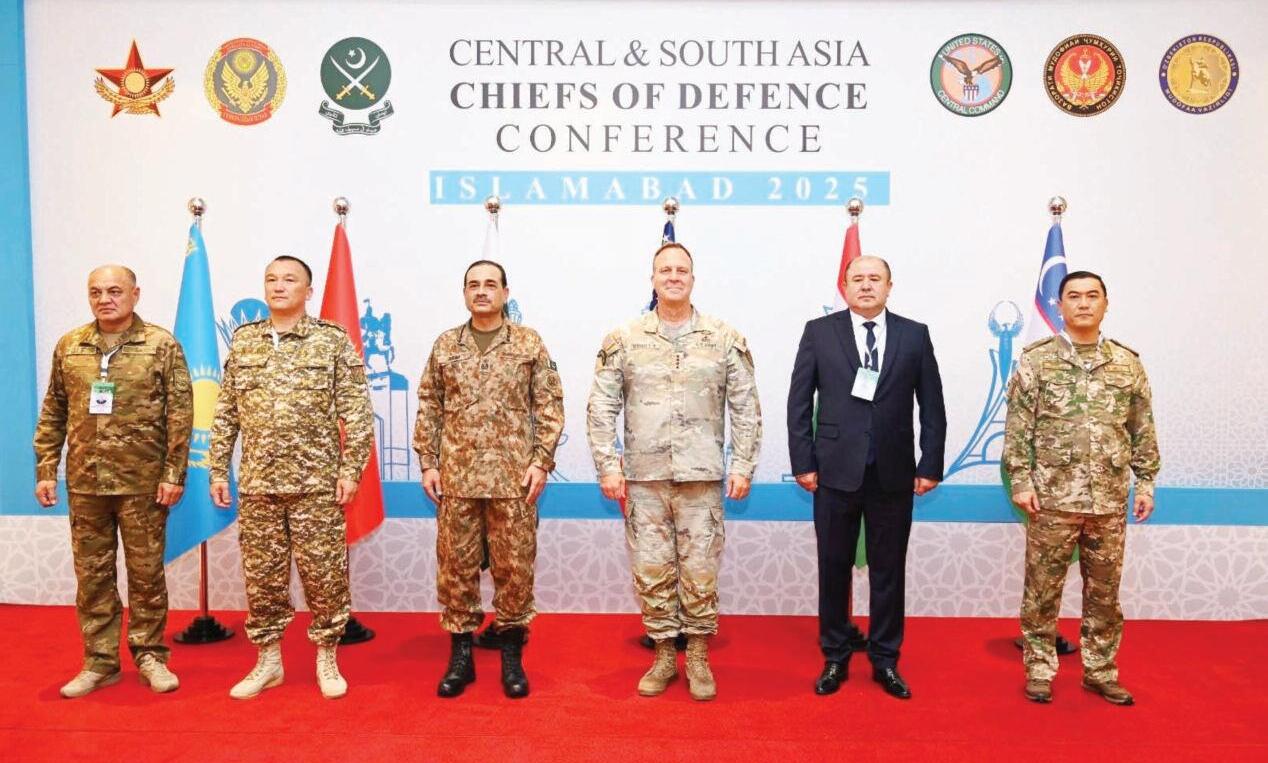
A statement from the Inter-Services Public Relations (ISPR) said Islamabad hosted the Regional Chiefs of Defence Staff Conference under the theme of Strengthening Bonds Securing Peace on Saturday, attended by senior military officials from the United States, Kazakhstan, Kyrgyzstan, Tajikistan and Uzbekistan The ISPR said COAS Munir formally welcomed the distinguished defense delegations and reaffirmed Pakistan s
ISLAMABAD s
President Asif Ali Zardari on Monday conferred the Nishan-e-Imtiaz (Military) upon Commander of the United States Central Command (USCENTCOM), General Michael Kurilla, in recognition of his exceptional services for regional peace and efforts to bolster Pakistan-US defense cooperation In a formal investiture ceremony held at the Aiwan-e-Sadr, the conferment of the prestigious award was made in recognition of General Kurilla’s exemplary service and pivotal role in advancing enduring military cooperation between Pakistan and the United States General Kurilla s visionary leadership has been instrumental in fostering mutual understanding, enhancing defense collaboration, and deepening counterterrorism cooperation between the Pakistan Armed Forces and US Centcom the Inter-Services Public Relations
(ISPR) said in a statement His consistent engagement reflects a profound respect for Pakistan’s central role in promoting peace and stability across the region it added The conferment of this distinguished honour reflects Pakistan s deep appreciation for General Kurilla s unwavering support and affirms the growing depth of the
lateral military partnership,” it said During his visit General Kurilla held detailed meetings with senior Pakistani civil and military leadership including President Zardari and Chief of Army Staff (COAS) Field Marshal Syed Asim Munir The discussions encompassed
“This landmark multilateral engagement marked a significant stride toward advancing regional security cooperation military diplomacy and strategic dialogue among participating nations, the statement said According to the ISPR, the conference sought to reinforce security collaborations enhance training initiatives and exchange the best practices in counterterrorism and other defence and security programs The military s media wing added that the participants collectively reaffirmed their resolve to uphold peace, respect, and national sovereignty and confront common security threats such as terrorism cybersecurity and violent extremism
Three Indian-sponsored terrorists eliminated in Swat
operation: CTD
The Swat Police and Counter Terrorism Department (CTD) on Saturday killed three key operatives of Indian-proxy Fitna al-Khawarij, including a high-value target (HVT) carrying a bounty of Rs2 million, in a joint counter-terrorism operation, the CTD confirmed According to the CTD, the terrorists were involved in attacks on security forces and the killings of police personnel Among the deceased was Ajmal alias Waqas accused of murdering members of a Village Defence Council and listed as a most-wanted terrorist The second suspect was identified as Matiullah, also known as Ishaq and Junaid The third slain terrorist was Rahimullah Rehmani, also known as Rohullah The CTD stated that the terrorists were also linked to IED attacks and extortion cases and were part of a network receiving foreign funding to spread terror in the region Regional Police Officer Sher Akbar Khan called the operation a decisive blow to the operational wings of Fitna al-Khawarij in Swat and surrounding areas, affirming continued efforts to eradicate the group Khyber-Pakhtunkhwa Inspector General of Police Zulfiqar Hameed praised the CTD and Swat police for the success and stressed that operations against terrorists would be intensified to ensure lasting peace in the province Three bodies found near M-8 highway in Khuzdar Meanwhile, the bullet-riddled bodies of three individuals were found near the M-8 highway in Khuzdar district of Balochistan The victims identified as Abdul Majeed Ata-urRehman and Mumtaz were shot dead by unidentified assailants and dumped by the roadside according to local police All three were residents of Khuzdar, initial reports confirmed Police and rescue teams arrived at the scene and shifted the bodies to Khuzdar Teaching Hospital via Edhi ambulance An investigation is under way
India-sponsored terrorists, their facilitators have
QUETTA
s ta f f r e p o r t
Interior Minister Mohsin Naqvi on Saturday reaffirmed the federal government s unwavering support for Balochistan in its fight against terrorism, declaring that “Indiasponsored terrorists and their facilitators” “have no place to hide in Pakistan and vowing they would be brought to justice at all costs
Interior Minister Mohsin Naqvi was co-chairing a high-level meeting alongside Balochistan Chief Minister Sarfraz Bugti held in Quetta to review law and order
According to a statement released from Chief Minister s Secretariat the meeting focused on the overall security situation in Balochistan, the performance of law enforcement agencies, and ongoing operations against “Fitna alHindustan a term designated for Indian-proxy groups operating in the region
The Balochistan IGP, Frontier Corps (North) IG, Counter Terrorism Department DIG, Special Branch DIG Levies DG senior officials from the Home and Tribal Affairs Department and other representatives of law enforcement agencies attended the meeting
CM Bugti briefed the meeting on the current security scenario, progress made by security forces and updates on the implementation of the provincial action plan against
no place to hide: Naqvi
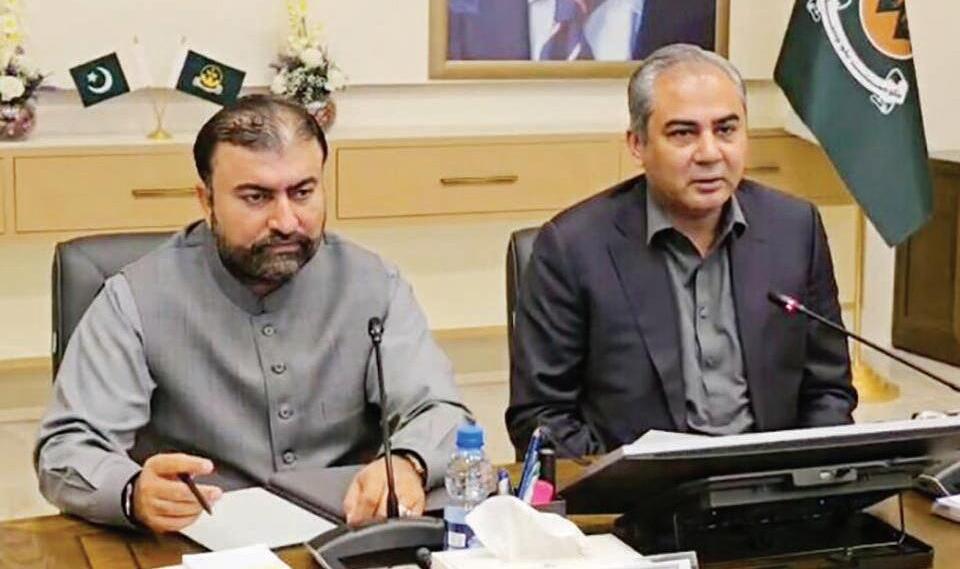
terrorism He also identified obstacles impeding the plan s execution and invited suggestions to overcome them
Speaking on the occasion, the Interior Minister declared that the end of Fitna al-Hindustan terrorists would be a disgraceful one saying Those challenging the writ of the state will be dealt with an iron hand
He assured the complete cooperation of the federal government in the restoration of peace in Balochistan reiterating that the center stood firmly with the provincial government and that a strong coordination mechanism existed between the two
CM Bugti stated that the war against terrorism was not only the responsibility of the security forces but of the entire nation He said that action against subversive and terrorist elements had been further intensified He added that all state institutions in Balochistan were fully active and working in complete coordination to restore peace and order He stressed that the sacrifices of the people and security personnel would not go in vain He also highlighted the resolve and confidence of the nation, expressing optimism that Pakistan would overcome the threats posed by its enemies Earlier in the day Naqvi arrived in Quetta on a daylong visit and received at the airport by provincial ministers and senior officials Upon his arrival at the Chief Minister House, he was formally welcomed by CM Bugti The two leaders also paid tribute to the martyrs and offered prayers for the security personnel who had lost their lives in the line of duty
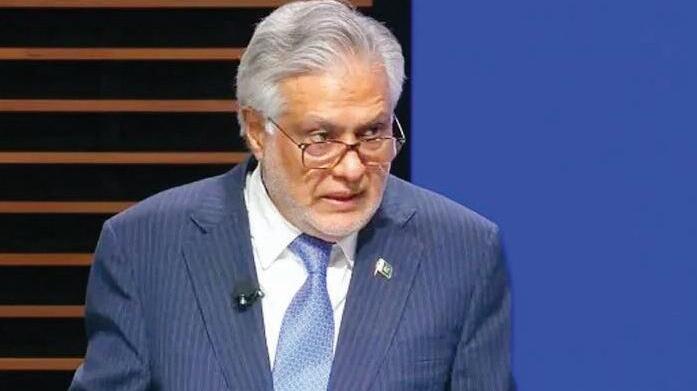



by regulatory reform expert Scott Jacobs BoI representatives Securities and Exchange Commission of Pakistan (SECP) officials, and the Overseas Investors Chamber of Commerce (OICC) reviewed recommendations to remove structural barriers and digitize outdated processes that hinder business growth Khan emphasised
gested

part of Pakistan’s expanding carbon market strategy
Launched in 2015 the Delta Blue Carbon project is a public-private partnership between the Sindh government and Indus Delta Capital, focused on restoring and conserving over 3,500 square kilometers of mangrove forests in the Indus Delta
Emphasizing the project’s international significance the minister said that millions of carbon credits are being produced from Sindh s mangrove-rich coastline Mangroves absorb four times more carbon than regular trees he said underscoring their unmatched role in climate change mitigation
He added that Pakistan is successfully running mangrove rehabilitation programmes in both Sindh and Balochistan calling the coastal forests a critical natural defense against erosion and flooding
The health of our mangrove ecosystems is directly tied to the future of our fisheries coastal tourism and sustainable resource management, the minister stated Their degradation, on the other hand, threatens the livelihoods of coastal communities and the foundations of these key sectors ”



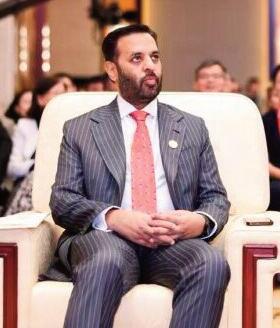

The balancing act
Pakistan tries to keep both the USA and China happy
DEPUTY Prime Minister and Foreign Minister was in Washington Following in the footsteps of Chief of ArmField Marshal Asim Munir, and though he had no encounter with President Trump, as did Field Marshal Munir at a White House lunch meeting on June 20, Mr Dar s meetings included Secretary of State Mike Rubio Field Marshal Munir himself was in Beijing at the same time, meeting with counterparts in the People s Liberation Army, the Chinese Vice-President and the Foreign Minister Pakistan has become interesting after the recent clash with India and not just from the geopolitical point of view Mr Dar ’s discussions with Mr Rubio centred around trade and investment as well as relations with India One of the main issues between the two countries has been that of tariffs imposed by the USA That has been very worrisome for Pakistan whose trade surplus with the USA is the only one it has with its major trade partners It is thus very important for Pakistan Reducing this surplus would be difficult, though such steps as buying US crude would leave its overall deficit unchanged, for the decrease in the surplus with the USA would be balanced by an increase in deficit with the countries it would otherwise have imported from Mr Dar also said that a deal on minerals would be finalized soon, thereby indicating concretely that Pakistan expected US investment if the deficit was to be reduced The two also discussed Pakistan-India relations, where it seems the USA is caught in something of a bind It has tried over the course of some years to prop it up as a regional counterweight to China but it has shown that it cannot take on Pakistan It is scrabbling in the region not so much for a replacement as to repair the many relationships it damaged in that search such as with Pakistan Pakistan is at the moment successful in its balancing act, increasing its relations with the USA, but at the same time maintaining those with China The engagement with Pakistan is part of the general US strategy to grow closer to China s friends Just as Pakistan is unwilling to make a choice, neither China nor the USA is trying to force Pakistan to do so, itself an indication that both see a walk back from the precipice India is perplexed by this, so Pakistan should expect it to renew its attacks on it to get rid of its frustration

Dedicated to the legac y of late Hameed Nizami Arif Nizami (Late) Founding Editor
M A Niazi Editor Pakistan Today Babar Nizami Editor Profit
IN the modern era the most dangerous complex and all-encompassing challenge confronting humanity is climate change It is a crisis that has affected nations, governments, economies, agriculture, health, water, food, and energy indeed, every aspect of human life No longer merely a scientific or environmental issue climate change has become a deeply human ethical economic and political dilemma whose scope continues to expand by the day As the world stepped into 2025, the severity of climate-related changes intensified
Returning to chaos
AsAdullAh RAisAni
THERE are three major events that have significantly altered the course of history in the recent past First, the two World Wars in the last century caused millions of casualties, gross violations of international norms and a global economic depression ultimately leading to the establishment of the nuclear proliferation regime Second the tragic incident of 9/11 in which four hijacked planes resulted in the deaths of nearly three thousand American citizens Third, the two limited aerial wars that occurred in the last two months, May and June By now it is clear that we no longer live in the world as it was before May 7 The Indian false-flag operation against Pakistan which began on that day, tested the nation s diluting deterrence However, Pakistan not only effectively restored and upheld its credible minimum deterrence policy during the aerial conflict from May 7 to 10, but it is also continuing to perform well in various domains with diplomacy being foremost among them That mad venture by the BJP-led Indian government has injected a new spirit into the Pakistani nation which can be effectively harnessed to help lift the country toward progress
Something similar was witnessed during the recent 12-Day War between Iran and Israel which took place from June 12 to June 23 The so-called “Operation Rising Lion was initially aimed at rolling back Iran s nuclear program by bringing about regime change in the country Images of Israeli Prime Minister Benjamin Netanyahu and his wife alongside Mohammad Reza Pahlavi and his wife the son and daughter-in-law of the last ruler of the Pahlavi dynasty in Iran surfaced during the 12-Day War The meeting had taken place two years ago in April 2023 in Jerusalem Reza Pahlavi was received at Tel Aviv s Ben Gurion Airport by Israel s Intelligence Minister Gila Gamliel
Many analysts believe that regime change is the only way Iran’s nuclear programme can be rolled back once and for all However no one can say with
certainty whether Reza Pahlavi would meet the same fate as Muammar Qaddafi of Libya, who faced a tragic end after dismantling his country’s nuclear programme There are a few urgent lessons to be drawn from these two recent military episodes for the nations that are militarily weaker than a few major powers or their allies First, in the realm of power politics, weaker states tend to rely on international law, norms, and morals, whereas stronger states often pursue their goals by any means necessary In both recent cases beginning with the Pakistan-India 2025 crisis it was Pakistan s strong and credible deterrent defence that prevented the country from plunging into a full-scale war and the region from descending into a nuclear standoff Had Pakistan not been conventionally capable or a nuclear-armed state, India with its larger armed forces might have struck Pakistan as brutally as Israel is committing genocide in Gaza and other occupied Palestinian territories In the second case it was again Iran s drone and missile capabilities that prevented it from becoming another Iraq or Afghanistan Even if there had been some internal debate among the Iranian leadership under the fatwa of their Islamic Rev-
ambiguity has likely been clarified by

5°C by the end of this century The consequences of
warming would be catastrophic: rising
els
glaciers more frequent and
Though the number of lessons may be many, only a few key ones have been discussed here The learned and responsible must continue their efforts to prevent the spread of hatred States should not rely solely on the so-called guardians of the so-called New World Order, and the international community as a whole must wake up from its slumber before it is too late

storms floods droughts and a decline in global agricultural productivity These impacts are no longer hypothetical; they are unfolding in real time Pakistan ranks among the ten most climatevulnerable countries, despite contributing less than one percent to global greenhouse gas emissions The scars left by the catastrophic 2022 floods are still healing and yet by 2025 the country has once again been grappling with intense heatwaves unexpected rainfall patterns and a looming water crisis Water levels at major reservoirs like Tarbela and Mangla have dropped to alarming lows Agriculture in Sindh and South Punjab is under severe stress while urban centres face chronic water shortages In Karachi a coastal megacity the rising sea level is eroding land and threatening human settlements People are being displaced by a phenomenon known as climate-induced migration, which may evolve into a major humanitarian crisis in the coming years At the governmental level several positive initiatives have been undertaken Projects such as the Ten Billion Tree Tsunami Clean and Green Pakistan the National Electric Vehicle Policy, and the recent Climate Action Bill 2025 are commendable efforts These initiatives aim to reduce carbon emissions, green urban spaces and promote sustainability In line with the Nationally Determined Contributions (NDCs) submitted in 2021 Pakistan pledged to reduce its emissions by 50 percent by the year 2030 However, many of these initiatives face serious challenges, including lack of financial resources, weak implementation mechanisms, policy discontinuity and low public awareness Speeches and announcements alone are not enough Addressing the climate crisis requires a consistent coordinated and grassroots-level approach A c
Climate change is not just an environmental or scientific term, it is a blaring alarm bell for the future of humanity If we fail to implement effective strategies, consistent policies, and collective awareness today, tomorrow's historians will remember us not as visionaries but as negligent and self-centered The time has come to act decisively Let us commit to building a future that is not only livable but also green, resilient, and just for ourselves, and for the generations yet to come
Reforms in the agriculture and water sectors are also indispensable Pakistan ranks among the least efficient countries in terms of water usage Techniques like rainwater harvesting drip irrigation and crop diversification must be adopted to mitigate the impact of climate change on food security and rural livelihoods
On the global stage, platforms like the United Nations Climate Change Conferences (COP) have provided an avenue for dialogue and commitments During COP30 (2024 Azerbaijan) numerous pledges were made but the pace of implementation remains frustratingly slow The developed nations responsible for most historical emissions must not only reduce their current carbon output but also offer financial technical and administrative support to developing countries like Pakistan to help them cope with this shared crisis
It is essential to recognize that the solution to climate change does not lie solely with governments or institutions Every individual holds a piece of the answer We must adopt lifestyles rooted in simplicity sustainability and environmental consciousness Small yet powerful actions reducing energy use avoiding single-use plastics, planting trees, conserving water, supporting local products, and prioritizing public transport can collectively lead to meaningful change
Climate change is not just an environmental or scientific term it is a blaring alarm bell for the future of humanity If we fail to implement effective strategies consistent policies and collective awareness today, tomorrow's historians will remember us not as visionaries but as negligent and self-centered The time has come to act decisively Let us commit to building a future that is not only livable but also green resilient and just for ourselves and for the generations yet to come The writer holds a doctorate in Islamic Studies
Tragedy on repeat
e a r l y 1 0 d a y s t o l o c a t e t h e u n f o r t u n a t e v e h i c l e T h i s d e l a y e xp o s e s t h e p o o r s t a t e o f e m e rg e n c y r e s p o n s e i n f r a s t r u c t u r e i n t h e r e g i o n E v e r y d a y e s p e c i a l l y d u r i n g t h e s u m m e r s e a s o n t h o u s a n d s o f p e o p l e t r a v e l o n t h i s r o u t e Ye t n e i t h e r t h e p r o v i n c i a l g o v e r n m e n t n o r t h e p r o j e c t - e x e c u t i n g a g e n c y h a s t a k e n c o n c r e t e s t e p s t o i mp l e m e n t s a f e t y m e a s u r e s T h e r e a r e s e v e r a l c r i t i c a l z o n e s w i t h s h a r p t u r n s a n d l a n d s l i d e - p r o n e a r e a s w h e r e m o s t a c c i d e n t s o c c u r T h e o r i g i n a l p r o j e c t p l a n i n c l u d e d t u n n e l s a n d s a f e t y w a l l s t o s ec u r e t h e s e h a z a r d o u s s t r e t c h e s H o w e v e r t h e s e t u n n e l s w e r e r e m o v e d f r o m t h e p r o j e c t u n d e r s u s p i c i o u s c i r c u m s t a n c e s A n o t h e r a l a r m i n g i s s u e i s t h e a b s e n c e o f p r o p e r r o a d s i d e s a f e t y b a r r i e r s w a r n i n g s i g n s a n d p r e c a u t



Aterror India uses money, propaganda, and
proxy terrorists to fight while Pakistan uses guns and sacrifices The indisputable proof of India s financial and logistical assistance to terrorist groups like the TTP, the BLA, and other separatist groups functioning from Afghan territory is too strong for the world to ignore The systematic effort by RAW to destabilize Pakistan has been repeatedly revealed Every act of terrorism against Pakistan bears the imprint of India from planning attacks on security installations to providing financial support to insurgents in Balochistan This is a flagrant act of statesponsored terrorism and a clear breach of international law; it is not a bilateral issue The world community however is still silent Western nations that have been so outspoken about counterterrorism and human rights elsewhere have decided to ignore India s role in cross-border terrorism This hypocrisy is a disgrace to the international order as well as an insult to Pakistan
The Pakistan Army continues its precision operations with unparallelled tenacity in spite of the loss of innumerable soldiers Pakistan s security forces conduct 24/7 Intelligence-Based Operations (IBOs) to destroy terrorist sleeper cells and their support systems, from the untamed landscapes of North Waziristan to the urban hideouts of Karachi Pakistan is getting closer to its objective of having a homeland free from terrorism with every raid interceptions and sacrifice Terrorists can no longer operate with impunity thanks to the cooperation of the Pakistan Army, the ISI, and other law
f f i c u l t i e s s i n c e t h e b e g i n n i n g t h a t w o u l d h a v e d e s t r o y e d w e a k e r n a t i o n s B u t i t s w i l l h a s o n l y g r o w n s t r o n g e r w i t h e a c h t r a g e d y a n d a t t a c k T h e i d e a o f a f r e e , p e a c e f u l , a n d s o v e r e i g n P a k i s t a n i s w h a t o u r s o l d i e r s a r e f i g h t i n g f o r t o d a y a s t h e y p a t r o l t h e b o r d e r s , r a i d t e r r o r i s t h i d e o u t s , a n d r e s c u e f l o o d v i c t i m s O u r m a r t y r s ' s a c r i f i c e s w o n ' t b e i n v a i n P r o p a g a n d a f l o o d s w o n ' t e r a s e t h e b l o o d o f o u r s o l d i e r s P a k i s t a n ' s f i g h t a g a i n s t t e r r o r i s m i s a l m o s t o v e r , a n d t h e w o r l d w i l l s o o n s e e a r e s i l i e n t a n d p e a c e f u l P a k i s
enforcement organizations They are exposing their financiers destroying their sanctuaries and destroying their networks
Pakistan is fighting not only for its own people but also for regional and international peace in this strategic war of survival, which goes beyond simple military action
Because of their strategic location intricate tribal relationships and presence of foreign-funded insurgents some parts of Pakistan continue to be high-risk areas for terrorism despite notable achievements
There is still a risk of infiltration and militant activity in regions such as North and South Waziristan portions of Kurram and Orakzai Agencies and the rocky Balochistani belts that border Iran and Afghanistan
Separatist groups supported by outside adversaries aim to use ethnic grievances as fuel for unrest in Balochistan, particularly in districts like Turbat, Kech, and Panjgur Similarly, as Tehreek-e-Taliban Pakistan (TTP)
remnants try to reorganize attacks continue to occur intermittently in tribal districts of Khyber Pakhtunkhwa such as Bajaur and Mohmand Since these areas are terrorists final hiding places, Pakistan s security forces are stepping up their efforts to permanently eliminate any threats from these delicate flashpoints
The armed forces are fighting a war against nature s wrath in addition to counterterrorism The Pakistan Army has once again emerged as the people s first line of defense following the recent floods and landslides that devastated parts of Khyber Pakhtunkhwa and Balochistan In these disaster-affected areas soldiers who were warriors on the battlefield are now rescuers aid workers and lifeguards
They can be seen carrying old women on their shoulders, feeding stranded families, and using their bare hands to rebuild homes that have been washed away The Pakistan Army s dual mission of eliminating terrorists while simultaneously preserving innocent lives serves as a potent reminder of the institution s core values It is the backbone of Pakistan s tenacity and not just a military force
In the past, Pakistan used to make headlines every day about terror attacks Suicides bombings and insurgent ambushes had all become
Rethinking the politics of money
If independent, technocratic central banks are not conducive to democrac y, how else should monetar y polic y be conduc ted? Until recently, asking such questions would have been considered heresy, but times have changed
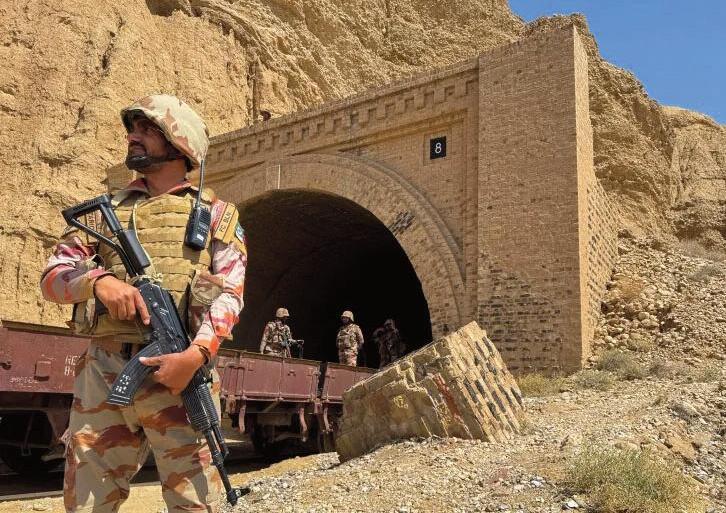


DEMOCRATIC societies require free and fair elections and an independent and impartial judiciary that resolves disputes without regard to the identity of the parties Unless the laws that democracies give themselves are enforced impartially and without interference by the executive a democracy is not worthy of its name
But is the same true for managing a democracy s money? If independent tech-
nocratic central banks are not conducive to democracy how else should monetary policy be conducted? Until recently asking such questions would have been considered heresy The conventional wisdom was that central banks should be in charge of monetary policy, and that they should be independent from interference by the executive, the legislature, and even the courts (with some exceptions) But times have changed US President Donald Trump has established himself as the chief disrupter of long-held assumptions on almost every political matter, including money By openly discussing whether to fire the chief of the Federal Reserve, he is not just attacking Jerome Powell personally; he is also targeting the belief that central banks should be independent Markets took fright but that should not stop us from pausing and asking whether the current monetary settlement is actually fit for purpose, and specifically for what purpose The idea that central banks should be both public and independent is of relatively recent vintage The Bank of England was es-
tablished in 1694 and grew into the role of a central bank even though it was privately owned until after World War II The US Federal Reserve was established only in 1913 Central banks mandate is established by law with price stability the highest priority for most, although some, including the Fed, have been tasked with other mandates as well, such as full employment
The price-stability mandate invokes the idea that monetary policy is a technocratic matter best left to experts who are removed from partisan politics But monetary policy inevitably has distributional effects For example, creditors lose from inflation but gain from higher interest rates; austerity policies may reduce debt but they increase unemployment often with deleterious results for democratic politics
The money question used to be a hot political topic In the 1870s the US Congress debated issues like how much bank money versus public money should be in the system, whether or not the issuance of money should be tied to a metallic standard and how best to accommodate social and political needs
through monetary policy It was clearly understood back then that monetary policy was a critical tool in the arsenal of politics As Christine Desan of Harvard Law School has suggested, the fact that managing money requires expertise should not obscure the fact that money is or perhaps could be a democratic medium John Maynard Keynes may have been less willing to put so much faith in democratic money management but in his Tract on Monetary Reform (1923), he called for the constitutionalizing of monetary policy in the name of social justice The US Fed as originally conceived was meant to achieve just that according to my Columbia colleague Lev Menand s The Fed Unbound : To create a federated governance structure for coordinating monetary policy and bank supervision in the service of the public
This is not how the Fed, or other central banks in leading capitalist economies, operate today Instead they have become subservient to finance – in no small part by their own doing From the early days of the repo market to the heyday of asset-backed securities and derivatives, central banks have used monetary-policy tools to support the expansion of finance from the traditional and well-regulated banking sector into shadow banking They justified their failure to tame the financial forces they unleashed by invoking the myth of self-regulating markets And to cover their tracks, they bailed out these markets before they could blow up the global financial system Perhaps they were independent from politics but they were hardly being impartial
Transcontinental railway integrating A sia and Europe
hubs and industrial agglomerations attracting experts and contributing to technological innovation Enterprises involved in the railway have also improved their production system and economic output The recent geopolitical turmoil in different regions affecting maritime transport, on routes such as the Red Sea, has only increased the importance of the China-Europe Railway Express for Eurasia s economic stability With the
In the aftermath of the 2008 global financial crisis central banks finance ministers, and regulators vowed that they would never allow it to happen again These commitments have been belied by the fact that under the supervision of the same agencies, shadow banking has not contracted but ex-
while upgrading human capital and infrastructure along its route and introduced the concept of economic complementarity and collaborative advancement of joint goals across borders The economic integration of Eurasia is based to a large extent on the development of this railway The China-Europe Railway Express has proven
departure frequency from Xi an and other Chinese cities shows the effectiveness of a landsea parallel method The increasing potential of land transportation is redefining the geopolitical value of the Eurasian economic passage, which materializes the goals of the Belt and Road Initiative The railway continues to steadily increase the numbers of trains and twenty-foot equivalent units (TEUs) transported every year proving its reliability
The sustainable development of the railway is very important for promoting the growth of trade between China and Europe and meeting the ever-increasing demand for freight transport in Asia and Europe The railway has the potential to become the most sustainable mode of longdistance transport for Eurasian connectivity complementing maritime and air transport The expansion of the railway would make it more effective China-European Union economic relations
are the bedrock of the Eurasian economic order and a major component of the global equilibrium In terms of trade scale China and the EU are the world s top and second-largest trading economies in goods respectively, and together account for almost 30 percent of global trade in goods and services and more than one-third of global GDP China-EU economic and trade relations have made great progress since the two sides established diplomatic relations in 1975 with two-way trade seeing a meteoric rise in the early 21st century In this context, the China-Europe Railway Express is a focal part of their economic relationship, which remains steadfast and resilient Indeed China and the EU are natural economic partners sharing a high degree of complementarity The two economies should be able to manage their industrial capacities and capitalize on their economic complementarity, rather than antagonizing each other, by carefully identifying areas of potential overlap in production and exports China and the EU through cooperation can improve global economic governance and contribute to a stable and equitable global economic order Closer cooperation between the EU and China amid the growing global economic challenges can help safeguard the economic interests of both the EU and China, restore the credibility of the global economic system ensure long-term global economic growth and stability and turn the China-Europe Railway Express into the most lucrative and mutually beneficial trade route in the world
author is an adjunct lecturer in Geopolitics University of Athens
continued expulsion of ethnic Bengali Muslims to Bangladesh as again highlighted by the Human Rights Watch (HRW) recently is totally unacceptable According to HRW s Asia director India s ruling BJP is fuelling discrimination by arbitrarily expelling Bengali Muslims from the country, including Indian citizens " By falsely labelling them as "illegal immigrants", Indian


in the clashes with security forces in Zahedan, the capital of the far southeastern province bordering Pakistan and Afghanistan SistanBaluchestan is home to Iran’s Sunni Muslim Baluch minority who have long complained of economic marginalisation and political exclusion A toddler and a 60-year-old woman were among those killed as well as three soldiers and law enforcement personnel assigned to the courthouse, the head of the province’s judiciary told IRNA He did not identify the sixth dead person He said the attackers wore explosive vests and carried grenades It was not clear if they had detonated them Jaish al-Adl, which claimed responsibility for the attack in a statement on its Telegram account, said it had killed at least 30 members of the judiciary and security forces It said it targeted judges and court personnel whom it accused of issuing death sentences and house demolition orders to Baluch citizens We warn all judges and employees of the judiciary that Baluchestan will no longer be a safe place for them and death will follow them like terrifying shadows until retribution, the group said in its statement It blamed security forces for the deaths of civilians saying they had fired indiscriminately

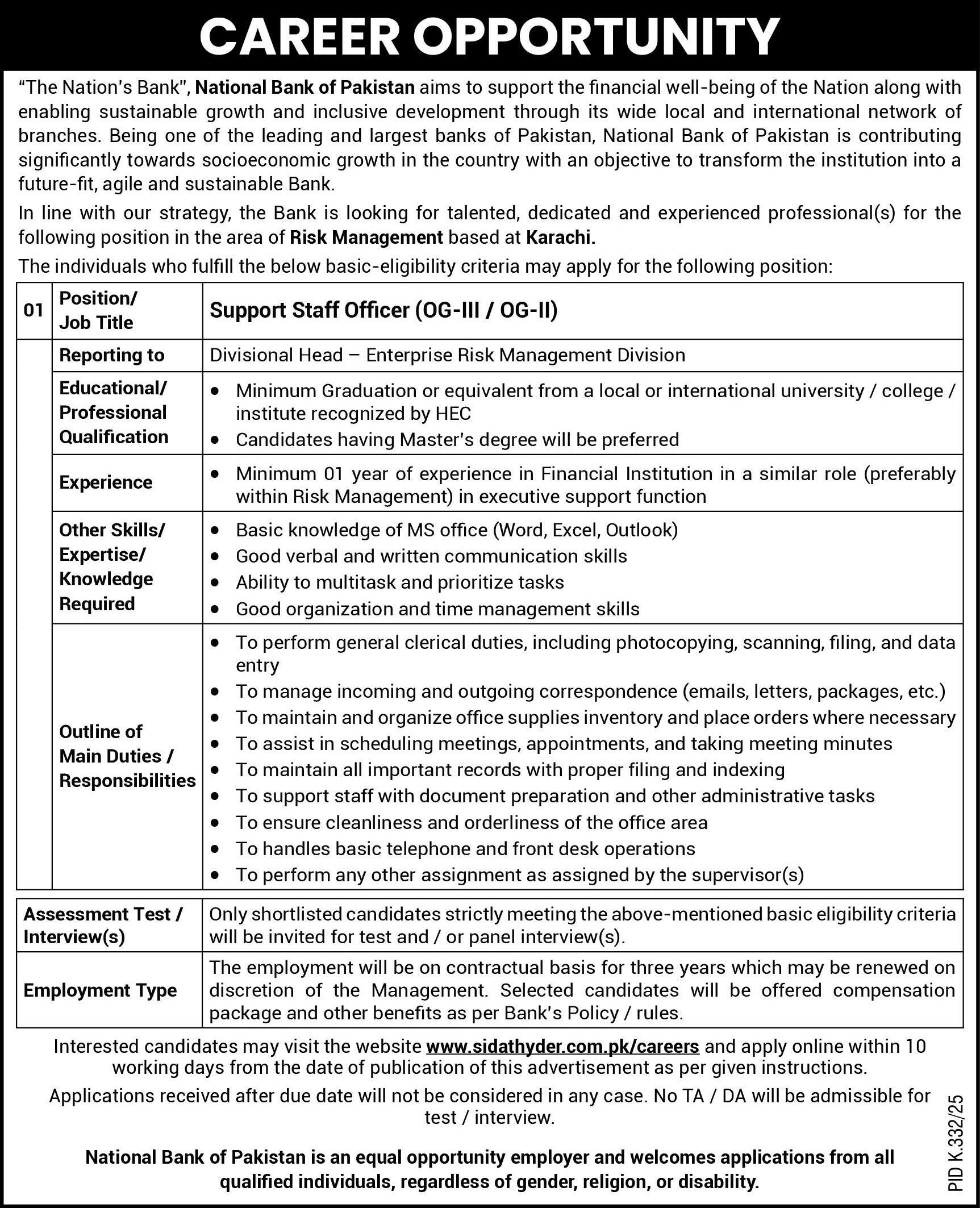


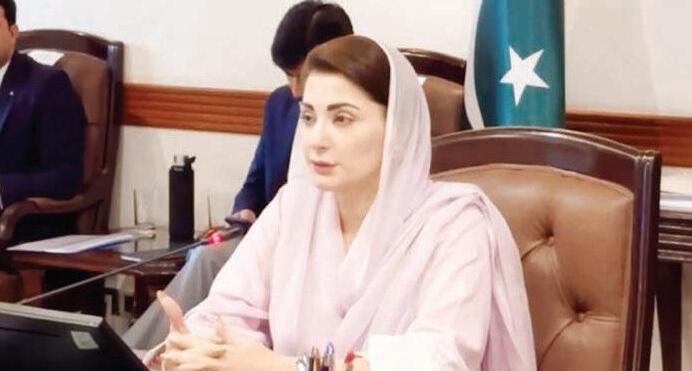

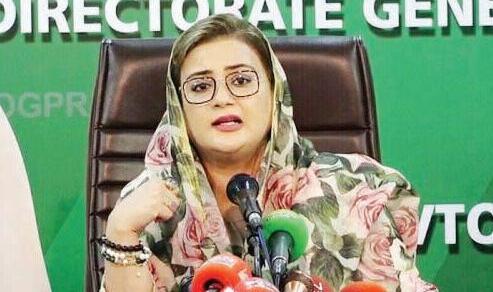
government is operating fully within its constitutional framework, and all administrative matters remain under our effective control ” She added Regretfully we are compelled to remind you of your constitutional role time and again, but you continue to exceed your limits ” Azma Bokhari asserted that the provincial government had initiated relief efforts from day one in floodaffected areas Under the direct guidance of Chief Minister Punjab Maryam Nawaz, all concerned departments are actively engaged in serving the affected population CM Maryam Nawaz herself visited Chakwal the day after the floods to console and assist the victims Taking a firm stance the min-



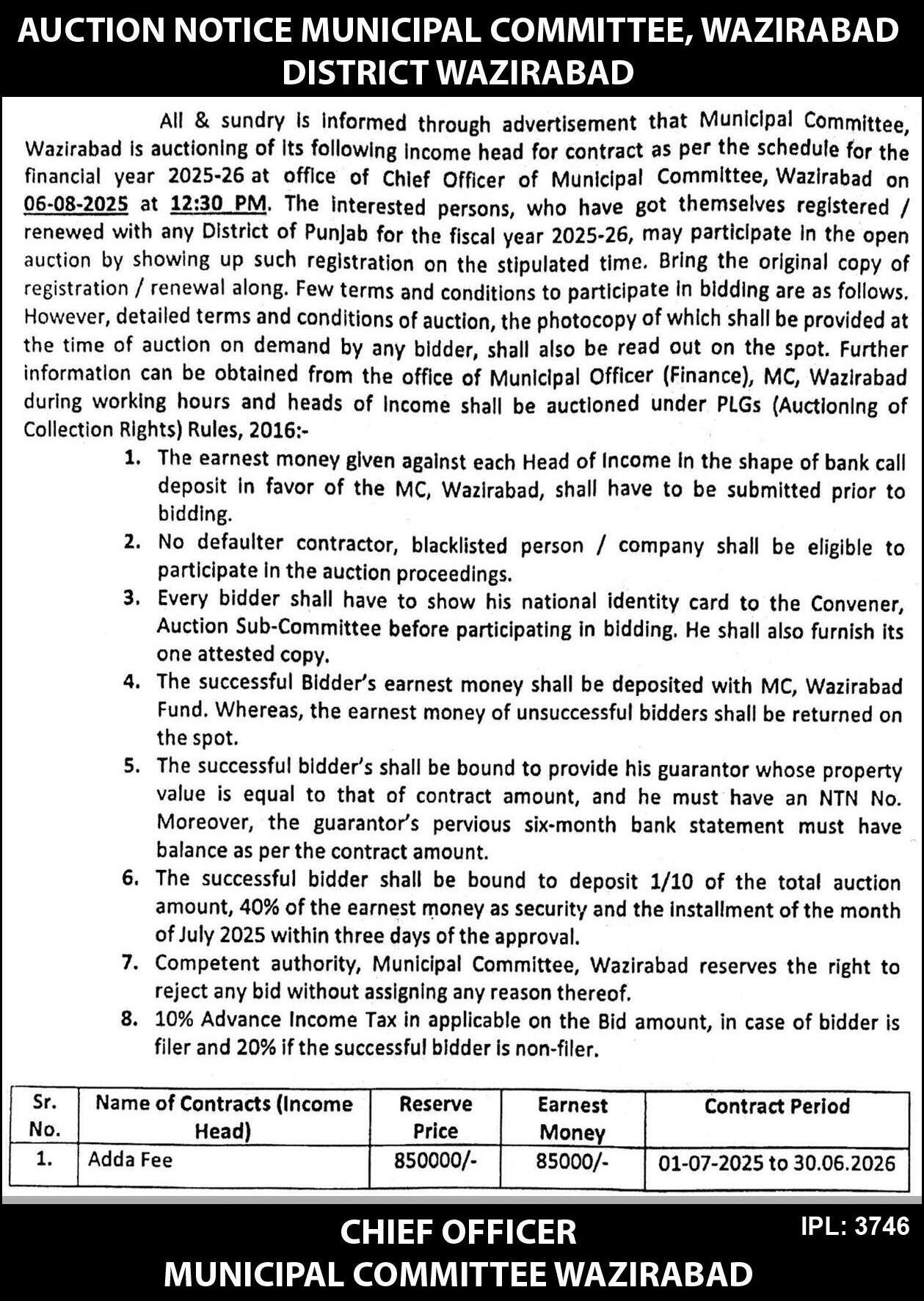




PM THUMBS UP FOR FORMATION OF MODERN, DIGITAL ECOSYSTEM IN FBR
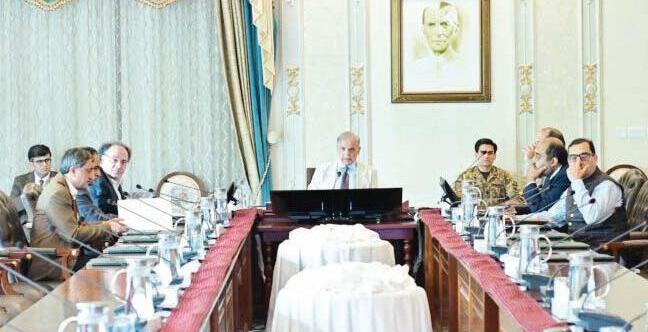
FBR seeks legal clarification on input tax exemption for tractor manufacturers ISLAMABAD S ta f f R e p o R t
The Federal Board of Revenue (FBR) is set to file a reference with the Law and Justice Division to clarify the legality of SRO 706
with the
under
indicated a
as tractors were exempted from
13(1) and the Sixth Schedule of the
Tax Act, 1990 However, SRO 706 (I)/2010, issued under Section 13(2), turned the
of tractors into zero-rated
which conflicted with the tax-exempt status provided in the law This resulted in the refund of input tax causing a loss of Rs7 07 billion in government revenue for one manufacturer alone The LTU, Lahore, explained that the refund was allowed according to FBR s existing rules, but the AGP pointed out that FBR officers should have adhered to the provisions of the Sales Tax Act in the public interest instead of simply following FBR instructions
and sustainable and commended the officers and staff who worked on the development of the new risk management system
PTI founder moves SC against bail rejec tion in May 9 cases
Incarcerated Pakistan Tehreek-e-
Insaf (PTI) founder Imran Khan on Saturday moved the Supreme Court against the rejection of his bail pleas in cases related to the May 9 mayhem by the Lahore High Court (LHC) On June 24 the Lahore High Court turned down the bail petition of the incarcerated former premier in eight separate cases related to the May 9 riots, including the attack on Jinnah House in Lahore A two-member LHC bench headed by Justice Shahbaz Ali Rizvi pronounced the reserved verdict after lawyers from the petitioner and the government sides concluded their arguments Previously on November 27 2024 the ATC had dismissed Imran’s bail pleas in these eight cases
In his petition filed with the SC, the PTI founder argued that the First Information Report (FIR) lacked sufficient evidence and termed the allegations of his involvement in the riots as baseless
It also stated that since he was in NAB custody at the time it was impossible for him to take part in those riots, besides raising doubts over the case on the basis of contradictions

in the prosecution statements Khan also sought further investigation into the case, as he suspected mala fide intent on the part of the police for avoiding his arrest for five months
The petitioner maintained that the evidence against him is inadequate, while other co-accused have already been granted bail
He also called the delayed police statements unreliable and asserted that he deserves the right to bail
On May 9 2023 country-wide protests erupted following the arrest of PTI founder Imran Khan from the premises of Islamabad
High Court (IHC) by the paramilitary Rangers in a graft case Later, Imran Khan was released on the orders of the Supreme Court bench led by the then chief justice Umar Atta Bandial However Imran Khan has been behind bars since August 2023 after he was sentenced in multiple cases
The protests turned violent wherein the miscreants targeted the civil and military installations including the Corps Commander s House in Lahore known as Jinnah House an airbase in Mianwali and the General Headquarters (GHQ) in Rawalpindi
Pakistan’s international bonds surge af ter S&P upgrades credit rating
PR OFIT S ta f f R e p o R t
Pakistan’s international bonds including Euro and Dollar bonds saw a surge on Friday following a credit rating upgrade by Standard & Poor s (S&P) to B- with a stable outlook, marking Pakistan s return to this rating level for the first time since July 2022 The upgrade attributed to improving macroeconomic fundamentals and
dollar
continued rallies with
2031 bonds dropping
basis points (bps) from
week settling at 9 0% and falling by 116 bps from a month ago Similarly, 2036 bonds saw a yield decrease of 38 bps on a weekly
basis and 85 bps on a monthly basis settling at 10% The 30-year April 2051 bond led the rally, rising 4 4% day-onday
rose 3 9% day-on-day to $87 80, with MTD and CYTD gains of 11 1% and 12 8%, respectively Shorter maturities also saw improvements with the sevenyear Sukuk (January 2029) rising 2 3% to $91 60 (YTM 7
